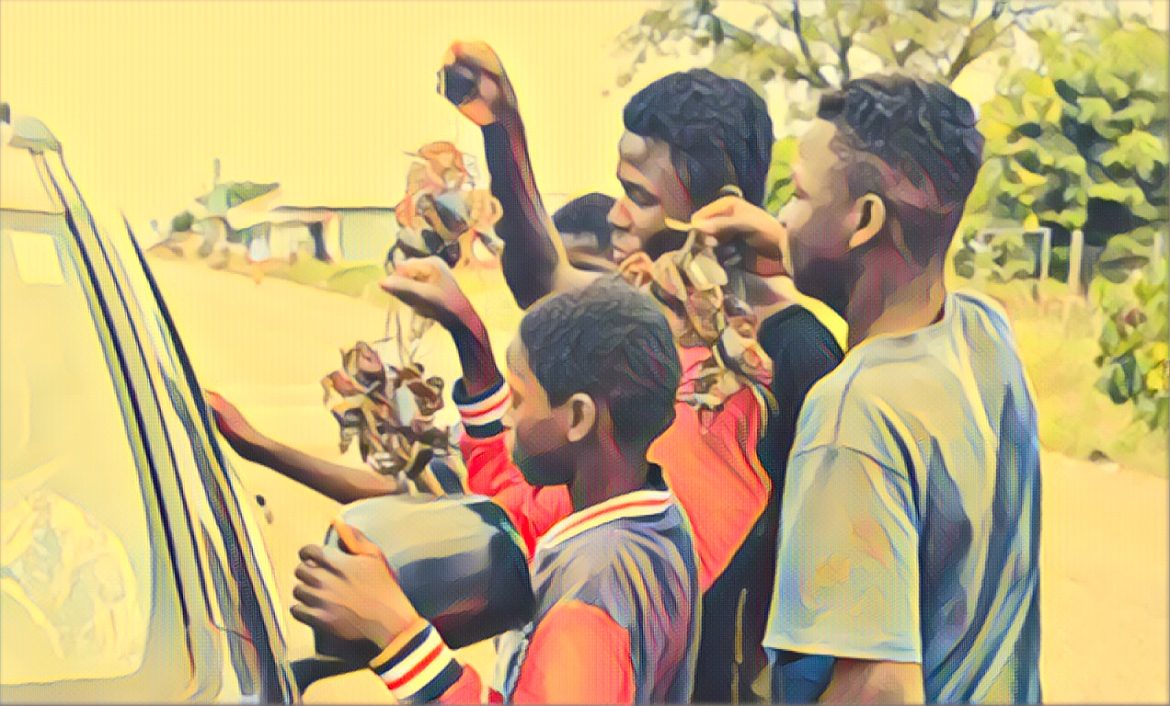In the Bono Region, children are transforming crab hunting from a fun riverbank activity into a profitable business, showcasing a remarkable entrepreneurial spirit. This change is especially prominent in communities like Chiraa, Kobedi in Sunyani West Municipality, and Ayigbe in Wenchi Municipality.
Children, aged 9 to 16, regularly visit riverbanks to hunt crabs, which they sell to chop bars and restaurant operators along the highway. Their competitive pricing has made this trade a common sight, with five crabs often tied together selling for GH¢10 to GH¢15, depending on size. This business, starting in Ayigbe in 2018, has now sparked healthy competition among children in towns along the Sunyani-Techiman highway.
Unlike other regions where hunters use traps and nets, Bono’s young hunters catch crabs with their bare hands. They dig holes in suspected crab spots and reach in to catch them. The older children sometimes clear bushes around the holes to catch crabs directly. The younger ones, or those afraid of being pinched, pour hot water into the holes to force the crabs out.
Despite the risk of dangerous reptiles like snakes and scorpions, these children persist. Frederick Sanpana, a 15-year-old from Kobedi, says he can catch over 50 crabs on a good day and earn about GH¢100. He and his friends hunt after school and on weekends, spending their earnings on school supplies, food, and family support.
According to a report by Graphic Online, some parents encourage their children to hunt for crabs, especially when money is tight. Others, like Samuel Kwame from Kobedi, do not allow their children to engage in crab hunting due to the risks.
Kofi Asare, a young hunter from Ayigbe, finds catching crabs easier in the rainy season when they hide in the sand. He uses a stick to detect them, explaining that soft sand makes it easier to catch crabs. He advises holding crabs at their backs to avoid their sharp claws.
Crabs, which build homes in sandy and muddy areas near rivers, offer not only income but also health benefits. They are a rich protein source, aid in wound healing, regulate cholesterol, prevent blood clotting, and boost mental activity. Crabs also help prevent cancer, promote healthy teeth and bones, and improve overall health.
This entrepreneurial venture by Bono Region’s youth not only yields financial gains but also underscores the importance of sustainably harnessing local natural resources.




